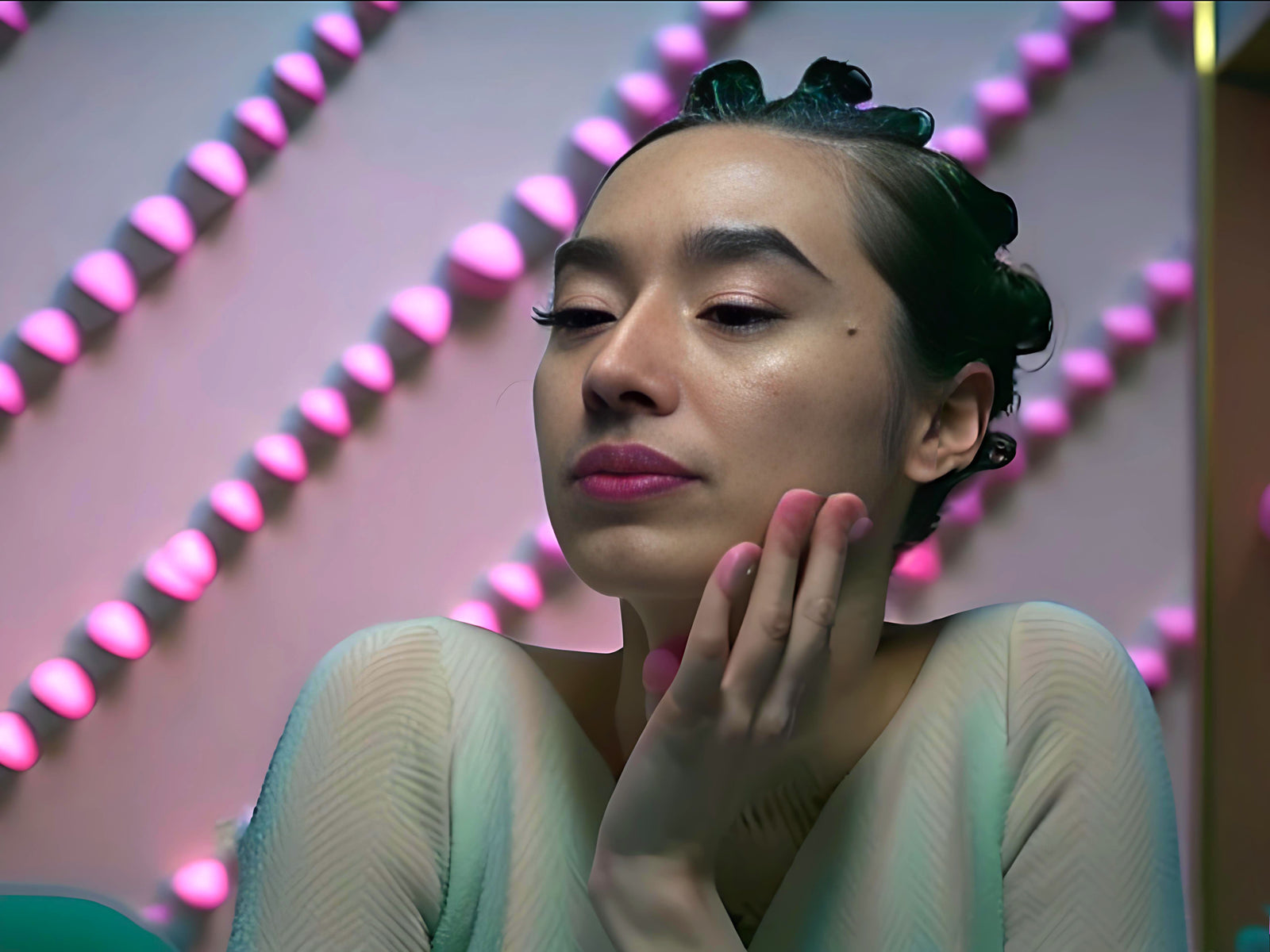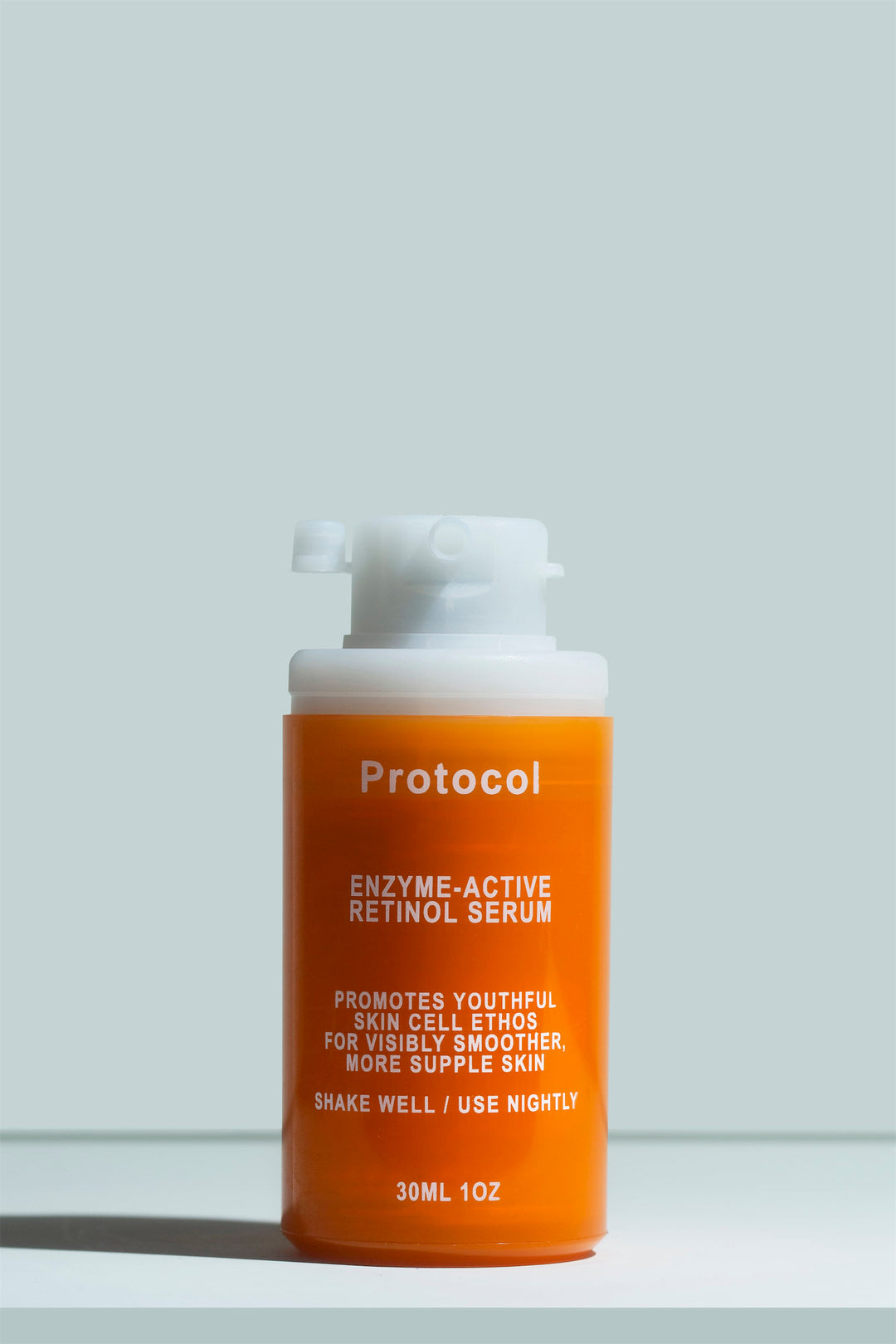What Does Vitamin C Serum Do for the Skin?


Vitamin C serums have cemented their place as staples in every worthwhile skincare routine. You’ve probably heard promises that vitamin C can give your skin a glow, fight early signs of aging, or reduce dark spots. But can a vitamin C serum actually help with all that stuff?
In this post, we'll break down exactly what vitamin C serum can do for your skin, and why we think of it as the “superhero” of skincare ingredients. We’ll touch on why so many vitamin C serums fail to deliver the promised results and give you some tips on how to choose a great vitamin C serum and use it correctly.
What is vitamin C?
Vitamin C is an essential nutrient also known as “ascorbic acid” in its pure, naturally-occurring form. Internally, we need vitamin C dearly. It’s an important molecule in a few of the body’s repair functions, including collagen production. It also supports the immune system and provides immense antioxidant protection.
Thankfully, vitamin C is plentiful in many fruits and vegetables (and not just citrus!). However, once you’ve cut a vegetable and left it sitting out for too long, or decided to cook it, its vitamin C content depletes. So make sure to eat your veggies while they’re fresh!
Topically, vitamin C serums have many of the same benefits for the skin, but only as long as they’re made with vitamin C’s pure form, ascorbic acid. Its ability to repair and protect makes it a valuable addition to any skincare routine.
However, it’s a challenge for cosmetic chemists to keep vitamin C fresh and effective. Ascorbic acid can degrade very quickly when exposed to air. Very few brands succeed in preserving it completely, so shoppers can end up with brown, oxidized serums that don’t contain any vitamin C anymore.
Why is vitamin C serum good for the skin?
Vitamin C’s positive effects on the skin are well accepted by dermatologists and the scientific community at large. Research shows that it can help with a very wide range of skin concerns by both helping the skin preserve its health and by reversing damage.
Brightens complexion and fades dark spots
The most famous Vitamin C skin benefit is its ability to radically boost skin radiance and visibly fade hyperpigmentation and dark marks. It works by interfering with the process that leads to the overproduction of melanin in the skin.
This, in combination with vitamin C’s ability to improve overall skin functions, leads to the skin looking brighter and more even with regular use. In our research on our Vitamin C Superserum, 84% of participants observed a brighter, more even complexion within just two weeks.
What’s clear is that vitamin C can do an even better job of brightening the skin when it’s used in conjunction with other skin-renewing ingredients like retinol and chemical exfoliants.
Actively fades fine lines and wrinkles
It’s well-accepted that the best cosmetic ingredient for wrinkles is retinol, which fundamentally alters the behavior of cells, but there is a respectable amount of literature showing that vitamin C can help, as well. Much like retinol, vitamin C has been found to improve the look of fine lines and deeper wrinkles, whether caused by photodamage or genetic aging.
With age or exposure to pollutants and UV light, the skin’s production of collagen, the protein that maintains the skin’s firmness, can be disrupted. With less collagen, the skin is less capable of resisting gravity or bouncing back from a facial expression and keeping its smoothness, which is part of the reason why wrinkles form.
Most researchers believe that vitamin C reduces wrinkles and improves skin firmness by promoting collagen synthesis, but it’s highly likely that it boosts a few other skin functions, for an overall healthier complexion.
Protection: Your friendly neighborhood antioxidant
Vitamin C isn’t just useful if you’re looking to reverse damage to the skin. It’s also a great preservationist. It’s basically the most potent antioxidant you can find in skincare, and hence lies its power as a skin protector.
The extent to which it protects the skin from the evil influences of a harsh environment is unparalleled. Vitamin c scours the skin for issues and helps out as your friendly neighborhood vitamin (get it?) wherever it's needed.
But what is an antioxidant (aside from that thing that’s supposed to be in all of your smoothies)? Basically, antioxidants are ingredients that block oxidation, which is the same process that turns your avocado brown and causes metal to rust.
When our skin is exposed to destructive elements like the sun and pollution, it gets damaged in the same way (also called free radical damage). Oxidation forms free radicals, which are incomplete molecules that go hunting on the skin for an electron to complete them.
When the skin is saturated with vitamin C, the super antioxidant donates that missing electron and stops a chain reaction in its track. This prevents further collagen degradation, fine lines, wrinkles, and sunspots, helping your skin stay gorgeous.
Gives your SPF a boost
Recently, dermatologists have been singing vitamin C’s praises for a new reason: It can actually boost your sunscreen. Sunscreens work by very literally blocking the sun’s rays, but sunscreen filters are also susceptible to oxidation over time. It’s part of the reason why we have to reapply sunscreen throughout the day! Vitamin C boosts the photoprotective effect of sunscreen, resulting in better protection.
And that’s not all, folks!
We covered the most major benefits of vitamin C, but since its skin benefits come from its ability to aid with all kinds of skin processes, there’s actually a lot more it might be able to do. Vitamin C has been found to help improve overall skin texture and tone, prevent dehydration, and may even help erase the redness and swelling associated with breakouts or sensitivity through its soothing action.
Does using a vitamin C serum have side effects
One of the best things about vitamin C serum is that, if it’s properly formulated, it's safe for all skin types and rarely causes irritation.
That said, before you introduce new products into your routine, we always recommend spot testing, especially if you have sensitive skin. Apply the product to a small area of your skin to see how it reacts before applying it to your entire face. You can also introduce vitamin C into your skin gradually, only using it every other day, and then slowly increase frequency as your skin adjusts to it.
Will vitamin C whiten my skin?
No. Vitamin C is not a skin-bleaching or whitening product. Vitamin C helps your skin function in a better way. It can disrupt hyperpigmentation, which leads to the visible fading of dark spots. But it won’t change your natural skin tone!
Skin-lightening products can be quite dangerous, especially if they’re unregulated. We recommend you practice caution if you come across products advertised as “whitening.”
How to use vitamin C serum in your skincare routine
Vitamin C is powerful, but you can help work its magic by introducing it into your skincare routine correctly:
- Cleanse your face or splash it with water. We recommend leaving your skin slightly damp to help the serum absorb.
- Apply vitamin C serum. Even if you use other serums or toners, a quality Vitamin C product should always be the first leave-on product that you apply to your skin.
- Apply SPF if you're using vitamin C serum during the day. Vitamin C will bolster your sunscreen, so this is the best time to use it, especially if you use retinol or other powerful products at night.
Can I use vitamin C serum every day?
Yes! Vitamin C serums are most beneficial when used daily.
Most clinical studies of vitamin C serums examined the antioxidant with daily use. Plus, it’s gentle enough for most clients to use every day, even with sensitive skin.
When should I apply vitamin C serum?
You can use vitamin C any time of day, but because of its photoprotective abilities, we highly recommend using it in the daytime under your sunscreen. It works best as the first leave-on step in your skincare routine, immediately after cleansing and before other toners, serums, or moisturizers.
If you’re new to skincare, we also don’t recommend layering other products with active ingredients on top of it. Using too many potent ingredients in one routine can irritate the skin, which can slow down the beneficial effects of your routine.
How do I know if vitamin C serum is working?
You'll know your vitamin C serum is working when you see bright, glowing, even skin! Using our biologically-optimized, oxygen-free Vitamin C superserum, many of our clients see these improvements in the first few weeks.
However, for concerns like fading hyperpigmentation, it may take two months or more of continuous use to notice a significant difference.
If you don’t see results, it’s possible that your vitamin C serum isn’t formulated correctly. Many brands use ineffective but stable derivatives of vitamin C instead of the real stuff. If the package isn’t air-tight or has been on store shelves for too long, it’s also possible that your vitamin C serum has oxidized.
We took measures to make sure our Vitamin C Superserum is formulated correctly, with real vitamin C formulated at the right pH and percentage to ensure optimal skin metabolization. We also developed an oxygen-free bottle using aerospace technology, to ensure it stays potent no matter what.
Brighten your life
If you want to ward off the early signs of aging or address existing photodamage and dark spots, a vitamin C serum definitely has a role in your skincare routine! It's gentle yet powerful, and it can support the effects of other useful skincare steps like retinol and sunscreen. So add it to your routine, and discover how much brighter your life can be!





